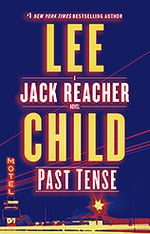
“We should be magnanimous in victory. Someone said that.”
“Full disclosure,” Reacher said. “I told you before. I’m a certain kind of person. Is the guy in the trunk still breathing?”
“I don’t know,” Abby said.
“But there’s a possibility.”
“Yes, there’s a possibility.”
“That’s me being magnanimous in victory. Normally I kill them, kill their families, and piss on their ancestors’ graves.”
“I never know when you’re kidding me.”
“I guess that’s true.”
“Are you saying you’re not kidding me now?”
“I’m saying in my case magnanimity is in short supply.”
“You’re taking food to an old couple in the middle of the night.”
“That’s a different word than magnanimous.”
“Still a nice gesture.”
“Because one day I could be them. But I’ll never be the guy in the trunk.”
“So it’s purely tribal,” Abby said. “Your kind of people, or the other kind.”
“My kind of people, or the wrong kind.”
“Who’s in your tribe?”
“Almost nobody,” Reacher said. “I live a lonely life.”
Reacher is on a bus bound for somewhere. He sees an older man being targeted for a mugging (both he and the would-be thief have noticed a fat envelope that seems to be holding cash). When the man and his predator get off at some city, Reacher abandons his planned trip to follow along.
Obviously, he foils the mugging, but the older man is injured, so Reacher appoints himself a guardian and assistant until he can get the man home. He learns that this man and his wife are in debt to a Ukrainian loan shark, and it’s not looking good. They got in this state due to some incredibly believable bad luck, and Reacher decides to take it upon himself to get them out of it. Maybe not permanently, but at least for the foreseeable future. He has essentially one week to extricate them from their current predicament, and Reacher is hopefully going to beat that clock and get back on the road.
We’re not told what city this takes place in, it doesn’t matter—it’s a small-to-medium sized city with two competing crime syndicates. One is a Ukranian mob, the other is an Albanian mob. They each control half the city, with a very clear line of demarcation. They’re currently enjoying an uneasy peace, and are nervous about a new police commissioner coming soon—neither group has been able to find a way to manipulate or bribe him and they’re in his sights. Before I forget, I want to say that I love that both groups speak/write in unbroken English—I get why other authors use broken English for these kinds of characters, but it feels less cartoonish this way.
Once Reacher starts doing his thing, a little comedy happens. Reacher is trying to do X. The Ukrainians see the effects and assume the Albanians are doing Y. The Albanians see the effects and assume the Ukrainians are up to Z. The clear messages Reacher is sure he’s sending aren’t being received by anyone. Before long the two factions are on the brink of war—which is the last thing that anyone wants.
While he’s trying to help out this older couple, Reacher befriends a waitress, Abby. Soon, she leads him to some other allies—a couple of musicians (one a former Marine) and a security consultant who used to be a Company Commander in an Armored Division in Europe during the Cold War. There’s some good-natured chest-thumping between the three veterans which helps lighten to tension.
Abby is tough and smart. She reminded me a lot of Patty from Past Tense—she adapts to the dangerous situation she finds herself in pretty well. She’s not crazy about it, she’s pretty freaked out, honestly. But she pulls herself together enough to help Reacher as well as being his conscience occasionally (she’s less willing than he is to leave a trail of bodies in their wake). Like Patty, once things get rolling, Abby starts analyzing her situation and what’s going on with the Ukrainians/Albanians in a very Reacher-esque way.
What makes this one distinctive from others in the series? It feels very ripped-from-the-headlines. Not in the sense that Law & Order based stories on actual events, but in that it addresses a handful of things that are in the news practically every day lately. Sure, Reacher frequently deals with real issues, but this seems the most timely since Gone Tomorrow a decade ago (I could be wrong about that, but that’s the one that jumps to mind without taking time to review the details of each of the 23 previous novels). I don’t think Child could/should keep that up, but doing something so fresh-feeling every now and then would be a great idea.
Also, Reacher seems a bit different—still Reacher, I’m not saying that Child’s changing him, but he’s not quite his usual self. For starters, he seems more inclined to a “kill ’em all” approach to the various criminals (especially later in the novel). Now, this could be because he wants to ensure the safety of this older couple who really can’t defend themselves, so he’s getting the defense in pre-emptively. The other possibility I can think of is that he assumes there’s only one language both organizations will understand.
The other difference is Reacher seems more mortal, at least more aware of his mortality. He tells Mrs. Shevick that he knows he will be beaten one day—but today isn’t that day. He’s also more obviously lonely (not just because of the semi-joking material quoted above). It’s like being that lone wandering warrior is taking its toll on Reacher. We’ve seen this before from time to time, but it seems to be growing lately. I remember reading in Martin’s Reacher Said Nothing that Child had considered retiring the series around The Midnight Line, I can’t help but wonder if this is a sign of that becoming imminent.
A stronger cast of non-“Bad Guy” characters than we’re used to seeing from this series, a winning female lead, some tragic victims, a bunch of ruthless criminals, a lot of bullets flying and Reacher at his toughest. There’s so little to not like here. One of my favorites lately.



This post contains an affiliate link. If you purchase from it, I will get a small commission at no additional cost to you. As always, opinions are my own.

 Gone Tomorrow by Lee ChildSeries: Jack Reacher, #13
Gone Tomorrow by Lee ChildSeries: Jack Reacher, #13![]()


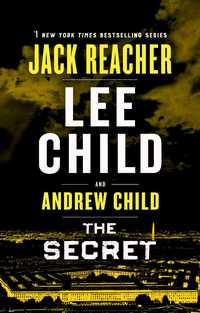



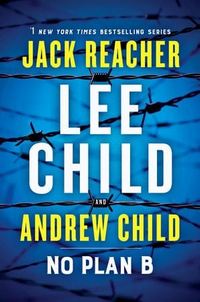


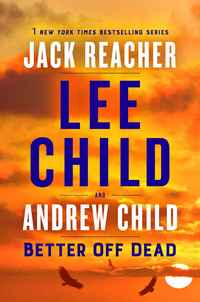


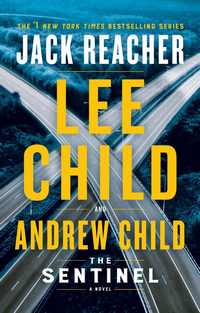


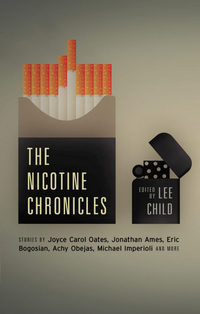
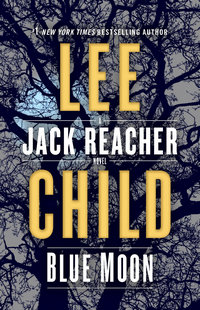



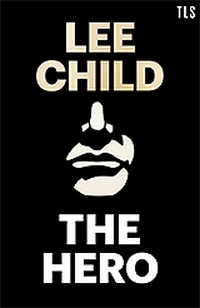
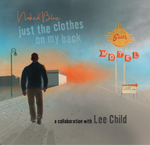
 Mutual fans/friends Naked Blue and Lee Child collaborated on this album — 10 songs from Jack Reacher’s point of view. Well, 9 from his POV and 1 (“Reacher Said Nothing”) that could be the soundtrack for about 90% of the books.
Mutual fans/friends Naked Blue and Lee Child collaborated on this album — 10 songs from Jack Reacher’s point of view. Well, 9 from his POV and 1 (“Reacher Said Nothing”) that could be the soundtrack for about 90% of the books. 
